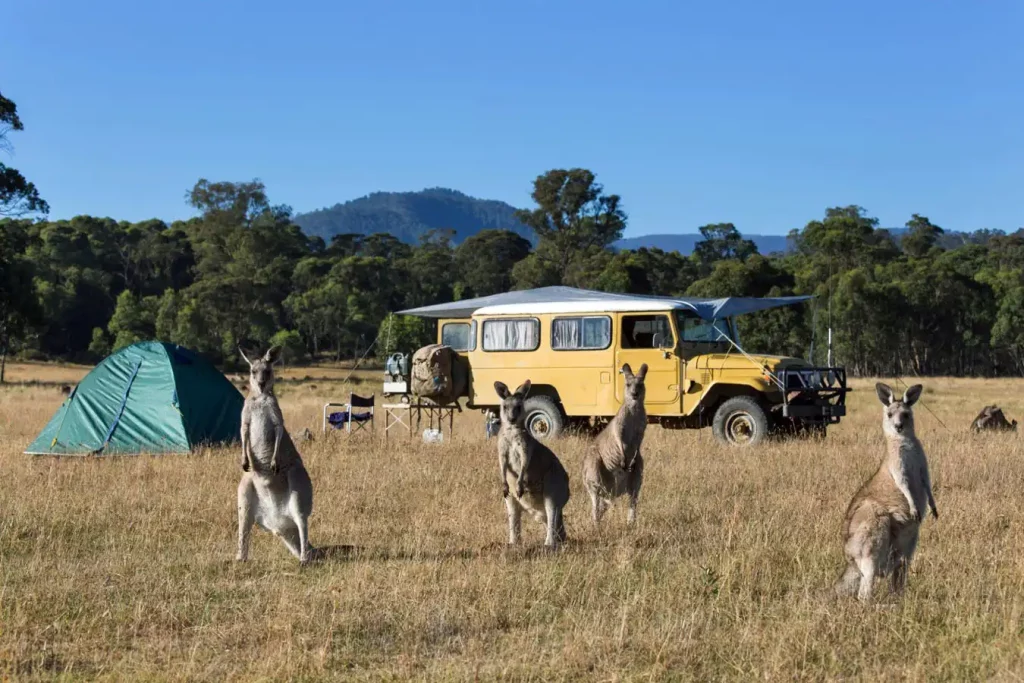Diving into “how to keep animals away from campsite” today, we’re unlocking the secret to peaceful camping.
Hello there, I’m Ovi Tanchangya, an ardent outdoorsman who loves sharing experiences from the wild.
This article is a practical guide, extracted from the wisdom of my past adventures.
Can’t you already smell the campfire smoke and the aroma of camp food, without the worry of unwelcome critters?
I promise, by the end of this read, you’ll be excited for your next camping trip, equipped with the best strategies to keep it animal-disturbance-free.
So, buckle up and let’s make your camping memories safer and more serene, just like the sound of forest rain.
Understanding Animal Behaviors and Patterns
Knowing how to coexist peacefully with wildlife during our camping trips begins with understanding animal behaviors and patterns. It helps us anticipate their actions, and by doing so, we can minimize any surprise encounters or unwelcome guests at our campsite.
Common Animals Encountered While Camping
We often share our camping zones with a variety of animals, ranging from curious raccoons and squirrels to more imposing creatures like bears and wolves. And let’s not forget the smaller creatures, like insects and spiders. Each of these species has its unique behaviors, habitats, and interest in our campsites.
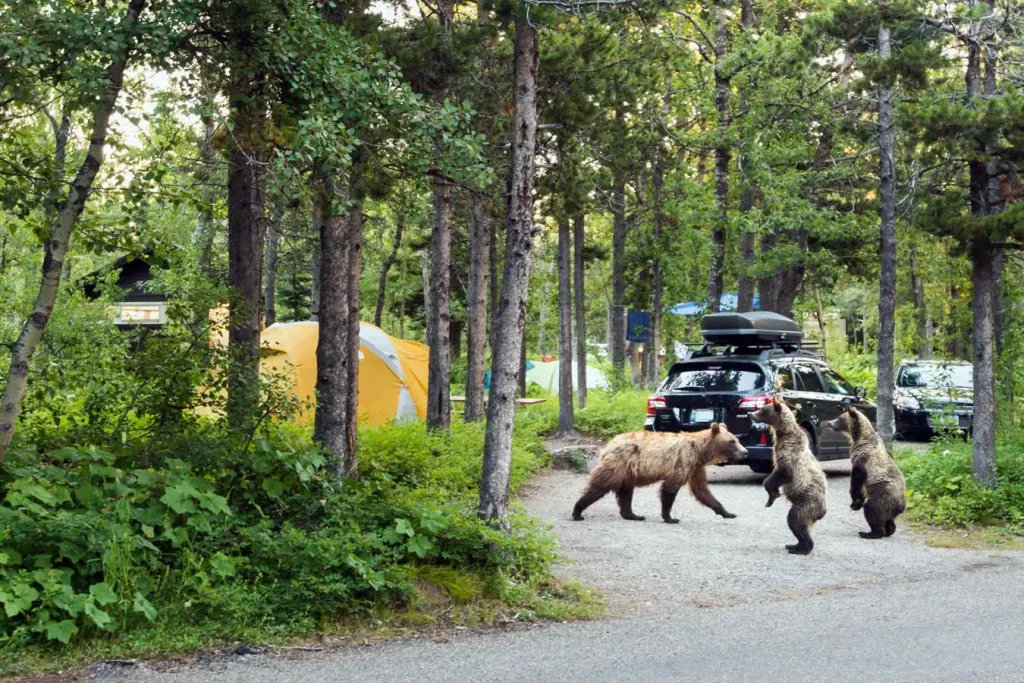
Animal Behaviors and Habitats
A little knowledge can go a long way. By understanding the patterns and behaviors of these animals, we can better anticipate and prevent unwanted encounters. For instance, raccoons are notorious for their love of food and will often visit campsites looking for an easy meal. Similarly, bears are known to be attracted to food smells, and they have a keen sense of smell that can detect your dinner from miles away.
On the other hand, creatures like squirrels and birds might be attracted to shiny objects or the possibility of crumbs left from your meal. And insects? Well, they’re everywhere, attracted by a mix of human scents, food, and bright lights.
Understanding these behaviors and being mindful of our actions can help us coexist with these creatures while maintaining our campsite as a safe and comfortable space for our adventure.
Assessing Campsite for Animal Activity
The first step towards peaceful coexistence with wildlife during camping is to evaluate your chosen campsite for any signs of animal activity. An understanding of your surroundings can help prevent unwanted encounters.
Recognizing Signs of Animal Presence
Being observant can be your best defense against unwanted animal visitors. Keep an eye out for any animal trails, droppings, or scratches on tree barks, as these are often signs of animal activity.
For example, small holes dug in the ground could indicate squirrels or raccoons. Whereas large, flattened vegetation or bear scat may point to the presence of larger wildlife. Remember, these signs suggest that animals frequent these areas, and it’s advisable to be extra vigilant in such cases.
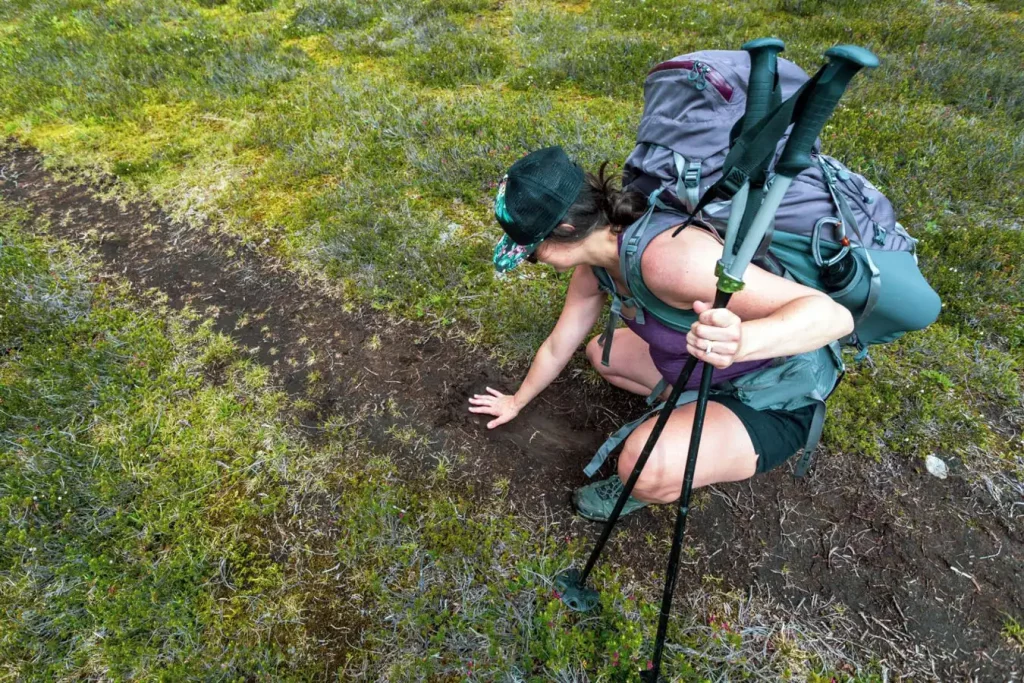
Evaluating Campsite Locations
Choosing the right campsite is vital for a safe and enjoyable camping experience. Select a site that’s not too close to animal trails, water sources, or dense vegetation, as these are often hotspots for wildlife. Remember, flat, open areas with good visibility can help you spot any approaching animals and give you time to react accordingly.
Learn more: How to Make a Bucket Light for Camping
Best Practices for Keeping Animals Away from Your Campsite
Now, let’s explore some best practices for maintaining a wildlife-free campsite. From proper food handling to noise and light management, each of these strategies contributes to a safe and pleasant camping experience.
Proper Food Storage and Disposal
Food is the primary attraction for most animals. It’s important to store your food securely, either in your vehicle, a bear-proof container, or suspended from a tree, out of reach from wildlife.
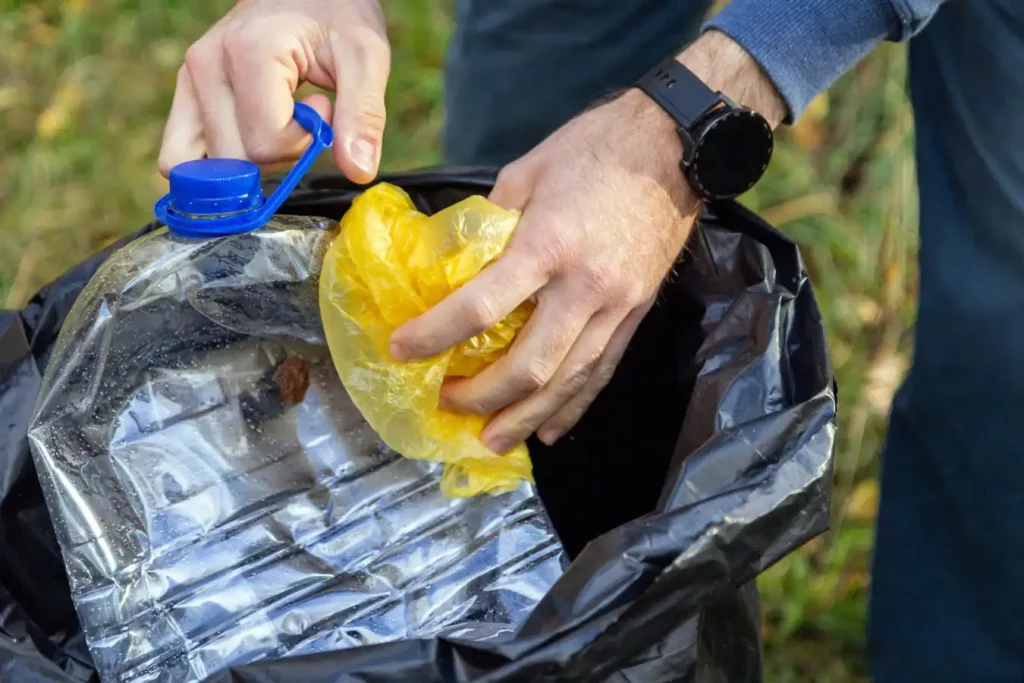
When it comes to disposal, ensure that all food scraps are packed up and removed from the site, or deposited in designated animal-proof trash cans. Even tiny scraps or smells can be enough to draw curious animals to your campsite. What not to do? Check given below picture:
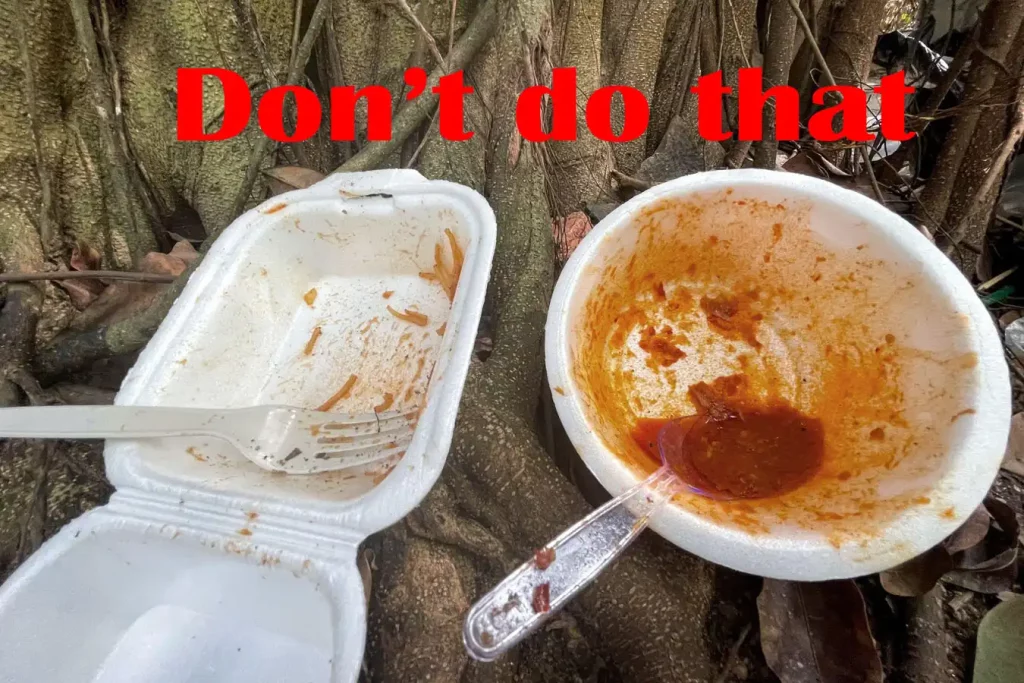
Setting Up Defenses
Camping equipment and specific products can also help deter wildlife. Products such as bear canisters or portable electric fences can be effective against larger wildlife. For smaller pests, consider insect repellant and mosquito nets.
Additionally, consider bringing a campsite animal deterrent, such as a wildlife repellent or an ultrasonic animal repeller. Remember, any defense strategy should be non-harmful to the wildlife, and only used to discourage them from entering your campsite.
Managing Noise and Light
Noise and light can both deter and attract animals. Most large mammals like deer or bears tend to avoid human noises. However, too much noise could disturb wildlife or provoke them, so it’s a balance.
Light, especially campfires and lanterns, can attract insects and smaller animals. Using light tactfully and only when necessary can help minimize this. Also, many campsites now offer ‘wildlife-friendly’ lighting that minimizes disturbance to wildlife.
Implementing these strategies not only assures a safe camping trip but also helps protect the wildlife we love so much. After all, we’re just visitors in their home, and it’s our responsibility to minimize our impact as much as possible.
Know more: When is the Best Time to Go Camping
What to Do if an Animal Enters Your Campsite
Even with the most careful preparation, animals may sometimes find their way into your campsite. Here, we’ll discuss how to react in such scenarios and take steps to prevent this from happening in the future.
Safety Protocols for Animal Encounters
Every animal requires a different response. However, a general rule is to remain calm, make yourself appear larger, and slowly back away while avoiding direct eye contact.
For example, if a bear strolls into your campsite, talk calmly to help the bear recognize you as a human. If a raccoon pops up, use a firm voice to scare it off. In the case of a snake, it’s best to freeze and give the snake room to escape. Remember, never try to touch or feed any wild animals.
In all scenarios, it’s essential to inform the local park authorities about your encounter. They might be able to help handle the situation or use the information to keep other campers informed and safe.
Preventative Measures for Future Camps
Learning from past experiences can help you avoid similar situations in future camping trips. If you’ve had frequent encounters with animals, consider changing your food storage methods, increasing the cleanliness of your campsite, or even selecting a different camping location next time.
Remember, prevention is the best way to maintain your safety while ensuring minimal disturbance to the wildlife.
FAQs about Keep Animals Away From Campsite
How to keep bears away when camping?
Do campfires keep animals away?
How do I keep raccoons away from my campsite?
How do I keep coyotes away from my campsite?
Does peeing around your campsite keep animals away?
Conclusion: Maintaining a Respectful Coexistence with Wildlife
In summary, keeping animals away from your campsite isn’t just about ensuring your safety. It’s also about respecting the natural habitats and behaviors of the wildlife we share the great outdoors with.
By understanding animal behaviors, properly assessing our campsites, storing our food correctly, setting up defenses, managing noise and light, and knowing what to do if an animal does venture into our space, we can ensure that our camping experiences are safe and enjoyable for us, and minimally disruptive for the wildlife.
Remember, we are the visitors in their homes, and it’s our responsibility to ensure that we leave no trace behind, preserving the beauty of these wild spaces for future generations to enjoy.

